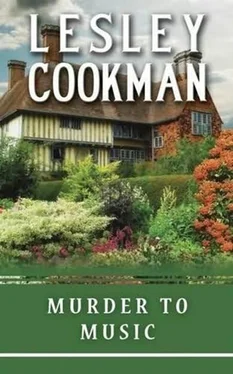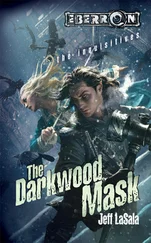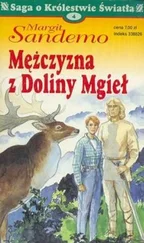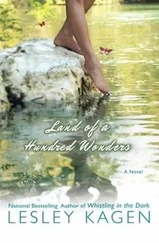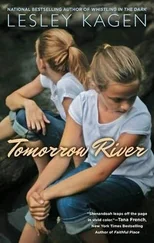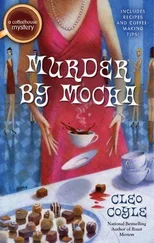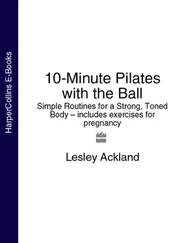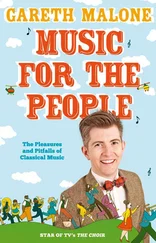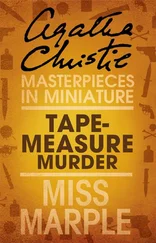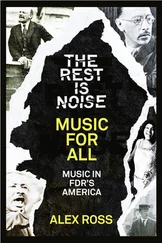Lesley Cookman - Murder to Music
Здесь есть возможность читать онлайн «Lesley Cookman - Murder to Music» весь текст электронной книги совершенно бесплатно (целиком полную версию без сокращений). В некоторых случаях можно слушать аудио, скачать через торрент в формате fb2 и присутствует краткое содержание. Жанр: Детектив, на английском языке. Описание произведения, (предисловие) а так же отзывы посетителей доступны на портале библиотеки ЛибКат.
- Название:Murder to Music
- Автор:
- Жанр:
- Год:неизвестен
- ISBN:нет данных
- Рейтинг книги:4 / 5. Голосов: 1
-
Избранное:Добавить в избранное
- Отзывы:
-
Ваша оценка:
- 80
- 1
- 2
- 3
- 4
- 5
Murder to Music: краткое содержание, описание и аннотация
Предлагаем к чтению аннотацию, описание, краткое содержание или предисловие (зависит от того, что написал сам автор книги «Murder to Music»). Если вы не нашли необходимую информацию о книге — напишите в комментариях, мы постараемся отыскать её.
Murder to Music — читать онлайн бесплатно полную книгу (весь текст) целиком
Ниже представлен текст книги, разбитый по страницам. Система сохранения места последней прочитанной страницы, позволяет с удобством читать онлайн бесплатно книгу «Murder to Music», без необходимости каждый раз заново искать на чём Вы остановились. Поставьте закладку, и сможете в любой момент перейти на страницу, на которой закончили чтение.
Интервал:
Закладка:
‘The children,’ said Fran. ‘Everyone else seems to know about the children, except us. And they’re nothing to do with the workhouse.’
‘How do you know?’ Rosie was wide-eyed.
‘I don’t know, but everybody else does. So what about them? Who are they?’
‘Actually,’ said Rosie, after a minute of staring at her feet, ‘nobody does know. It all stems from one body being unearthed years ago and unsubstantiated rumours about a child’s ghost in the garden.’
Libby looked dubious. ‘Is that all? When was this body unearthed, and how?’
‘By accident, as far as I can tell, when something was being done to the garden. Must have been sometime in the fifties, or perhaps earlier.’
‘And why did they think there were more?’
‘It was the other gravestones. I think it was assumed that they were the bodies of workhouse children, but you don’t think so?’ Rosie turned to Fran.
‘What age was the body?’ asked Libby. ‘I mean, when did it date from?’
‘I don’t think they could date it very accurately in those days,’ said Rosie, ‘but they thought it dated from the workhouse period.’
‘And where is it now?’ asked Fran.
Rosie looked surprised. ‘I don’t know. Re-buried, I suppose.’
‘Who would know?’ Libby leant forward. ‘And if you know all this, why on earth did you want us to find out about it? This is all very suspicious, Rosie, you must see that.’
Rosie sighed. ‘I know. I did a certain amount of research after I’d been to see the house, and that is all I came up with. But I couldn’t come up with any more, and the estate agents wouldn’t talk to me about the music. And then I started dreaming again.’
‘The same dreams?’ said Fran.
‘The ones I told you about. But there was always music – piano music. And it began to frighten me. And I couldn’t go back to the estate agents, I’d already pestered them enough. I couldn’t seem to get any further with my research, and the only documents at the county archives seemed to be about the workhouse. Although it did appear to have been a merchant’s house before it became part of the workhouse.’
‘So then you called us in,’ said Libby. ‘Tell me, would it have hurt to have told us all this in the first place?’
‘I didn’t want to prejudice you, I’ve told you,’ said Rosie, although the blush was staining her neck again. ‘I’m sorry if I misled you.’
‘Well, it was rather a childish thing to do,’ Libby sniffed.
‘I thought it would interest Fran,’ said Rosie.
‘So you invested it with a whiff of the supernatural just to season the dish.’ Libby frowned.
‘It’s all right, Lib,’ said Fran. ‘Now, Rosie, why didn’t you go on with the research yourself?’
‘Because of your reputation,’ said Rosie, sitting up straighter. ‘You see, I know all about your career as investigators.’
‘I’d hardly call us that,’ said Fran.
‘Bunglers, more like,’ said Libby.
‘Anyway, when Fran enrolled for my classes, I was delighted, especially when she told me she wanted to write about her Coastguard Cottage experiences.’
‘Ah!’ said Libby. ‘So you made your experience as much like hers as possible to get her interest.’
‘Oh, God.’ Rosie leant forward and put her head in her hands. ‘It really does sound awful when you put it like that.’
‘Yes,’ said Fran. ‘And now tell us about the music.’
‘Piano music,’ said Rosie, sitting upright once more. ‘When I heard it while I was upstairs in the house I thought it was coming from that piano downstairs, and how funny it was the same music as in my dreams -’
‘In your dream?’ said Libby sharply. ‘In the first dreams?’
‘Yes. Didn’t I say?’
Libby shook her head.
‘Oh, yes, there was always music. Debussy, mainly. The music that day was L’après -midi d’un faun – do you know it?’
‘On the day we visited it was The Girl with the Golden Hair ,’ said Fran. ‘Still Debussy.’
‘Now, how would they have known that?’ asked Libby, of no one in particular.
‘They?’ asked Rosie.
‘Didn’t it occur to you that someone was playing that music?’
‘Well, of course.’
‘And you never questioned it?’
‘No.’ Rosie looked bewildered.
‘Yet you asked us in to find out about it?’ Libby went on mercilessly. ‘Not even when you realised that, by doing so, you’d be putting us in danger?’
Chapter Seven
‘DANGER?’ ROSIE REPEATED. ‘HOW?’
Libby made a sound suspiciously like a snort. ‘For a writer you’re being remarkably dense. Or are you? Perhaps you know all about it already?’
‘I really don’t know what you mean,’ said Rosie, looking bewildered.
‘We’ve reported it to the police,’ said Libby, ignoring Rosie’s gasp, ‘because if the piano was playing each time someone visited it means that someone was behind it. Some kind of recording equipment which is turned on whenever someone comes to look at the house, to scare them off. That genuinely hadn’t occurred to you?’
Rosie was now looking aghast.
‘There’s something else, too,’ said Fran in a gentler voice than Libby’s accusatory tone. ‘You said you’d been in the back garden and seen the gravestones.’
Rosie nodded.
‘And did you see that the ground had been cleared?’
‘No. It was completely overgrown.’
Libby and Fran looked at each other.
‘That means it was within the last year,’ said Libby.
‘What was?’ asked Rosie.
‘We think – a new grave.’
Rosie turned white. Fran reached forward to steady her, but she stayed upright. Libby took her cup.
‘Here,’ she said. ‘More tea.’
Rosie took it obediently and sipped, her colour returning.
‘I’m so sorry,’ she said.
For a moment they sat in silence, then Rosie put down her cup.
‘I seem to have made a complete mess of things,’ she said. ‘First of all I should have told you everything I’d found out. And now I’ve unwittingly put you in danger.’
‘Only while we were at the house,’ said Fran. ‘But you understand why we had to inform the police. If what we found is a new grave, then the music is being played, presumably, by someone keen to keep people away, and therefore someone involved with the death.’
‘But I didn’t see the grave,’ said Rosie. ‘You said it had only been there since I saw the house. Why keep me away?’
‘Perhaps there are others,’ said Libby. ‘There has to be a reason, and it isn’t ghost music. I do wonder why on earth the estate agents didn’t report it, though.’
‘Others? You mean other graves?’ said Rosie.
‘Apart from the old ones, I mean,’ said Libby. ‘Anyway, we need to talk to the agents and see what they have to say. And find out about those children’s graves, too.’
‘We were thinking we should try and find a local amateur historian,’ said Fran. ‘I don’t suppose you know anyone, do you?’
Rosie thought for a moment. ‘Actually,’ she said slowly, ‘I think I do. There’s a chap who runs adult ed classes in local history. I don’t know him personally, but he’s there on the same day I am. I’ll go and get the brochure.’
She stood up and went into the cottage. Libby looked at Fran.
‘Now what?’ she said.
‘I suppose we tell Ian what Rosie’s told us, but it won’t do him any good. And I want to find out about this Debussy connection.’
Rosie returned with the thick Adult Education brochure, flicking through and finding a page.
‘There,’ she said. ‘That’s him.’
The page had brief biographies of the tutors. Professor Andrew Wylie was listed as a retired Professor of History at one of the northern universities who now ran local history sessions and occasional walks.
Читать дальшеИнтервал:
Закладка:
Похожие книги на «Murder to Music»
Представляем Вашему вниманию похожие книги на «Murder to Music» списком для выбора. Мы отобрали схожую по названию и смыслу литературу в надежде предоставить читателям больше вариантов отыскать новые, интересные, ещё непрочитанные произведения.
Обсуждение, отзывы о книге «Murder to Music» и просто собственные мнения читателей. Оставьте ваши комментарии, напишите, что Вы думаете о произведении, его смысле или главных героях. Укажите что конкретно понравилось, а что нет, и почему Вы так считаете.
